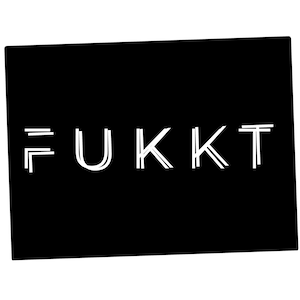Cunk, comedy, and anti-intellectualism
Philomena Cunk’s absurdly confident ignorance is both hilarious and revealing—because in a world where misinformation thrives, certainty often matters more than truth.

Why Philomena Cunk is the perfect satirist for our times
Introduction: The deadpan jab
Philomena Cunk is ridiculous, brilliant, and completely straight-faced—but would she be as funny if she weren’t exposing something deeply real? Cunk on Life, much like the work of Charlie Brooker, walks a tightrope between farce and bitter truths, using deadpan humour to poke holes in history, media, and expertise. This approach resonates strongly in an era where confidently delivered misinformation often overshadows reasoned discourse—something that’s been brewing since at least 1963, when Anti-Intellectualism in American Life first called it out.
Cunk’s humour lands so well because it mirrors the way misinformation spreads today: confidence is often more persuasive than knowledge. When Cunk makes an absurd claim with complete certainty, she highlights how people with little understanding can dominate conversations, often shaping public discourse more than actual experts.
The absurdity of confidence over knowledge—echoing Sacha Baron Cohen’s satire
Cunk’s interviews are structured to expose the uncomfortable gap between expertise and perception. She asks ridiculous, uninformed questions, and yet, because she delivers them with confidence, her interviewees are forced to take her seriously. This dynamic mirrors a broader cultural issue: people who sound certain are often believed, even when they are completely wrong.
This kind of satirical setup isn’t entirely new—Sacha Baron Cohen has long used similar tactics in Da Ali G Show and Who Is America?, where he plays characters who ask absurd or provocative questions to elicit revealing reactions from experts and public figures. However, while Baron Cohen often pushes people toward exposing their own biases or prejudices, Cunk’s style is less confrontational, emphasizing the absurdity of misinformation itself rather than the moral failings of her interviewees.
Cunk’s interviews are structured to expose the uncomfortable gap between expertise and perception. She asks ridiculous, uninformed questions, and yet, because she delivers them with confidence, her interviewees are forced to take her seriously. This dynamic mirrors a broader cultural issue: people who sound certain are often believed, even when they are completely wrong.
What’s even more interesting is how experts respond. While they could easily dismiss Cunk’s questions outright, many remain patient, polite, and accommodating. This raises another layer of commentary: the very people who know the most are often the least aggressive in asserting their knowledge. They entertain Cunk’s absurd premises not because they’re fooled, but because they understand the performance and the value of engaging thoughtfully, even in the face of nonsense.
- Think of pundits who talk in absolutes, regardless of evidence.
- Social media influencers confidently spreading misinformation about science or history.
- The phenomenon of “truthiness” (as Stephen Colbert coined it), where feelings often outweigh facts in shaping beliefs.
By taking this trend to its logical extreme, Cunk exposes how easy it is to mistake certainty for intelligence and how those who truly know often exhibit the least certainty in their explanations.
Why there is an intellectualism backlash—and why Cunk’s satire feels necessary
Anti-intellectualism isn’t new—it’s woven into history. From Socrates being sentenced to death for "corrupting the youth" to Galileo facing persecution for his scientific discoveries, skepticism toward intellectuals has always existed. However, in the modern era, this skepticism has intensified, often fueled by distrust in institutions, political polarization, and the rise of social media. Many people now see expertise as elitism and view intellectuals as out of touch with "real" concerns. The digital age has only accelerated this trend, where every opinion—no matter how uninformed—can gain traction if delivered with enough confidence.
We live in a time when misinformation moves faster than facts, and expertise is often dismissed in favour of more entertaining or emotionally satisfying narratives. Cunk’s satire thrives because she takes this absurdity and makes it undeniable. Her questions aren’t just dumb—they reveal the fragility of how we construct knowledge.
- It's worth considering that Cunk's occasional alignment with popular beliefs can contribute to her relatability.
- When she fumbles historical facts but insists she’s right, it mirrors how public figures or online personalities refuse to be corrected, doubling down instead of learning.
Cunk, in her exaggerated cluelessness, forces us to ask: how much of what we believe is just a result of who says it the loudest?
Gender as a sugar pill: How Cunk being a woman makes the joke land differently
While anti-intellectualism is the core issue Cunk exposes, her being a woman adds another layer to the satire. Society has long been more skeptical of women’s intelligence, meaning that audiences may initially interpret her as genuinely clueless before realizing the depth of the joke.
This is a reversal of the usual power dynamic: men who speak with confidence are often taken at their word, while women—no matter how qualified—are frequently second-guessed. Cunk’s character weaponizes this bias, using it as a comedic Trojan horse to slip deeper critiques past an audience that might otherwise resist them.
Would Philomena Cunk work if she were a man?
So, would this character work if played by a man? Maybe—but it would be different. A male Cunk might be read as an arrogant buffoon rather than an oblivious but oddly insightful commentator. Diane Morgan’s version walks the fine line between clueless and profound, making her easier to underestimate—which makes the satire hit harder.
Even the way experts react to Cunk is telling. Many remain patient, as if indulging a slightly lost but well-meaning person. Would they react the same way to a man asking the same absurd questions? Or would they grow frustrated more quickly, assuming he was mocking them? This subtle dynamic adds to the humour without overpowering the main message.
Conclusion: The genius of Cunk as an anti-intellectualist mirror
Cunk’s brilliance isn’t just in what she says but in how she says it—and what it reveals about the way we process information. Diane Morgan has crafted a character that thrives on satire, confidence, and absurdity, all while making us laugh at how ridiculous our world (and our perception of intelligence) truly is.
Cunk on Life is more than just a mockumentary; it’s a quiet but ruthless takedown of authority, expertise, and the illusion of knowledge. In a world where misinformation is thriving and expertise is dismissed as “elitist,” Cunk is the perfect satirist—an idiot who, through her satirical lens, reveals the intellectual shortcomings of those shaping public opinion.












